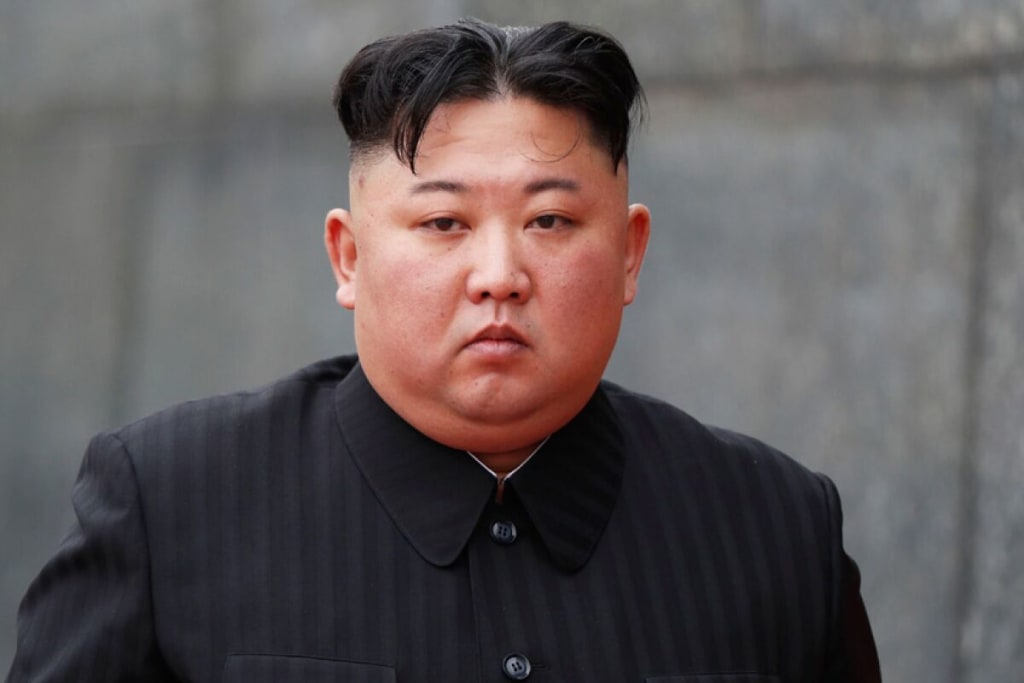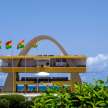
Kim Jong Un, the supreme leader of North Korea, has captivated the world's attention with his enigmatic personality and the secretive nature of his regime. As the third generation of the ruling Kim dynasty, he inherited the leadership of a country shrouded in mystery, isolation, and political intrigue. This essay aims to delve into the life, rise to power, governing style, and international relations of Kim Jong Un, providing a comprehensive overview of one of the world's most enigmatic leaders
Kim Jong Un was born on January 8, 1984, as the youngest son of Kim Jong Il, the previous leader of North Korea. His early life remains shrouded in secrecy, with limited information available. However, it is known that he attended the Liebefeld-Steinhölzli School in Switzerland under an assumed identity. There, he reportedly showed an interest in basketball and developed a passion for the sport.
Kim Jong Un's ascent to power began in 2009 when he was appointed to several key positions within the North Korean regime. Following his father's death in December 2011, Kim Jong Un officially assumed the leadership of the country. At the age of 27, he became the world's youngest head of state. To solidify his position, he quickly removed potential rivals and consolidated power within the ruling Workers' Party of Korea.
Kim Jong Un's governing style can be described as authoritarian, with a focus on maintaining the regime's grip on power. Under his rule, North Korea has continued to pursue a policy of juche, which emphasises self-reliance and the advancement of its nuclear weapons program. The country has faced significant economic challenges, with international sanctions further isolating the nation. Kim Jong Un has prioritised the development of nuclear weapons and long-range ballistic missiles, heightening tensions on the Korean Peninsula and attracting international condemnation.
Despite the emphasis on military might, Kim Jong Un has also pursued limited economic reforms, such as the establishment of special economic zones. These zones aim to attract foreign investment and promote economic development. However, the impact of these reforms has been limited, and North Korea's economy remains heavily centralised and controlled by the state.
Kim Jong Un's approach to international relations has been characterised by a mix of aggression, brinkmanship, and diplomatic overtures. His regime's pursuit of nuclear weapons and intercontinental ballistic missiles has raised regional and global concerns, resulting in numerous UN sanctions and diplomatic tensions.
However, in recent years, there have been moments of diplomatic engagement. Kim Jong Un held historic summits with South Korean President Moon Jae-in and United States President Donald Trump in 2018, marking a significant shift from the previous confrontational rhetoric. These meetings resulted in some initial progress toward denuclearization and eased tensions on the Korean Peninsula. Nonetheless, subsequent negotiations have stalled, and North Korea's nuclear program remains a significant challenge.
Kim Jong Un's leadership during the COVID-19 pandemic has also drawn attention. While North Korea claimed to have no confirmed cases of the virus, the country implemented strict border controls, exacerbating the economic impact and humanitarian concerns. The regime's focus on maintaining control and limiting outside information has made it difficult to ascertain the true extent of the pandemic's impact on North Korea.
Kim Jong Un's leadership of North Korea has been marked by a mix of aggression, diplomatic overtures, and limited economic reforms. His pursuit of nuclear weapons and long-range missiles has heightened tensions in the region and attracted international scrutiny. Although there have been moments of engagement and diplomacy, significant
Opinions about Kim Jong Un
The Supreme Leader of North Korea, vary widely among different individuals and groups. It's important to note that public perceptions can be influenced by various factors, including media portrayals, political biases, and personal beliefs. Here are some common perspectives that people may hold regarding Kim Jong Un:
North Korean Government Supporters: There are individuals who support the North Korean regime and Kim Jong Un. They may view him as a strong and capable leader who is committed to protecting North Korea's sovereignty and ensuring the country's self-sufficiency. Supporters may appreciate his efforts in maintaining the regime's ideology and pursuing a policy of military strength.
Human Rights Activists and Critics: Many human rights organisations and critics of the North Korean government have raised concerns about Kim Jong Un's leadership. They often point to the oppressive nature of the regime, including allegations of human rights abuses, political repression, and limited freedoms. These individuals may criticise Kim Jong Un for prioritising his own power and suppressing dissent rather than addressing the needs of the North Korean people.
International Community: Opinions of Kim Jong Un within the international community can be highly critical due to North Korea's nuclear weapons program and provocative actions. Many countries and global organisations, including the United Nations, have imposed sanctions on North Korea to pressure the regime to abandon its nuclear ambitions. Some may see Kim Jong Un as a destabilising force in the region and a threat to international peace and security.
North Korean Defectors: Individuals who have escaped from North Korea often have firsthand experience of the regime's conditions and may hold negative views of Kim Jong Un. Defectors often share stories of extreme poverty, food shortages, and lack of basic human rights in the country. They may see Kim Jong Un as a symbol of the oppressive regime that they fled from.
Neutral Observers: Some individuals may not have a strong opinion about Kim Jong Un or may hold a more nuanced view. They may acknowledge the challenges and complexities of the North Korean situation, including the historical context, geopolitical considerations, and the dynamics of inter-Korean relations. Neutral observers may appreciate the need for dialogue and diplomatic efforts to address the issues surrounding North Korea.
It's important to recognize that these perspectives represent a broad range of opinions and may not encompass the views of every individual or group. Public opinion on Kim Jong Un can be highly polarised, and it's crucial to approach the topic with critical thinking and consider multiple sources of information.






Comments
There are no comments for this story
Be the first to respond and start the conversation.